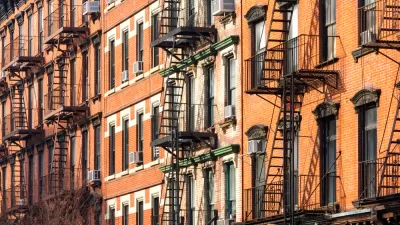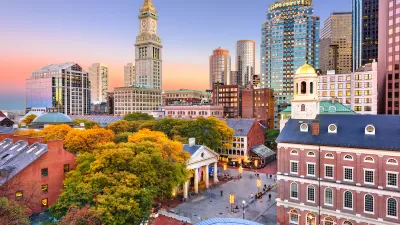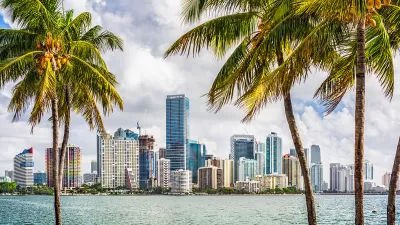A grassroots housing plan in Baltimore would keep control over neighborhood revitalization, and its benefits, in communities.
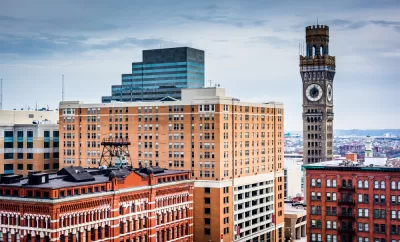
The "20/20 Vision for Fair Development" plan calls for the city to commit to an annual investment of $40 million. Half would go toward demolishing vacant and blighted properties; the other half would be a long-term investment in plans to rebuild permanently affordable housing through community land trusts.
Community land trusts, or CLTs, are nonprofits that establish communally owned property under a democratic governance structure. Baltimore Housing Roundtable, the coalition behind the proposal, says joint land ownership offers the possibility of neighborhood revitalization, and housing, without the risk of displacement:
"When these community controls are leveraged against market forces, neighborhoods can ensure a communally managed recycling of ownership, and avoid the frenzied churn of renters and developers commonly associated with boom-bust speculation and gentrification."
A city board recently took a different tack, approving a $600-million urban revitalization program from the governor that will incentivize new development on demolished properties.
"Project C.O.R.E." is the type of plan to which CLTs are proposed as an alternative. Advocates say the strategy of attracting private developers with little community accountability can be difficult to distinguish from an attempt to attract a new community to fill private developments. A January report from the Housing Roundtable reads:
"When significant numbers of people are constantly threatened with homelessness and the city can offer only trickle down development that, if successful, will further increase housing costs, the only reasonable conclusion is that involuntary displacement of a certain class of residents is a foreseeable part of the city’s plan and policy."
The Nation delves deeper into competing visions for Baltimore, and the possibilities for revitalization without gentrification.
FULL STORY: Can Neighborhoods Be Revitalized Without Gentrifying Them?

Pennsylvania Mall Conversion Bill Passes House
If passed, the bill would promote the adaptive reuse of defunct commercial buildings.
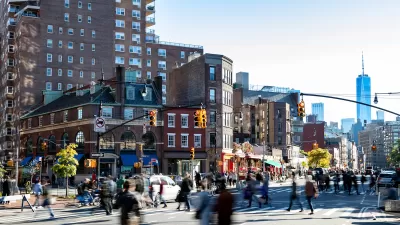
Planning for Accessibility: Proximity is More Important than Mobility
Accessibility-based planning minimizes the distance that people must travel to reach desired services and activities. Measured this way, increased density can provide more total benefits than increased speeds.
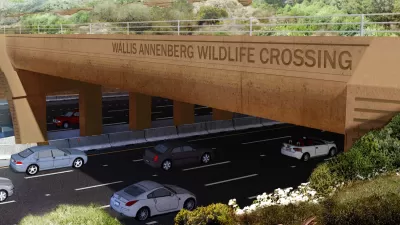
World's Largest Wildlife Overpass In the Works in Los Angeles County
Caltrans will soon close half of the 101 Freeway in order to continue construction of the Wallis Annenberg Wildlife Crossing near Agoura Hills in Los Angeles County.

Eviction Looms for Low-Income Tenants as Rent Debt Rises
Nonprofit housing operators across the country face almost $10 billion in rent debt.

Brightline West Breaks Ground
The high-speed rail line will link Las Vegas and the Los Angeles area.

Colorado Bans No-Fault Evictions
In most cases, landlords must provide a just cause for evicting tenants.
City of Costa Mesa
Licking County
Barrett Planning Group LLC
HUD's Office of Policy Development and Research
Mpact Transit + Community
HUD's Office of Policy Development and Research
Tufts University, Department of Urban and Environmental Policy & Planning
City of Universal City TX
ULI Northwest Arkansas
Urban Design for Planners 1: Software Tools
This six-course series explores essential urban design concepts using open source software and equips planners with the tools they need to participate fully in the urban design process.
Planning for Universal Design
Learn the tools for implementing Universal Design in planning regulations.























